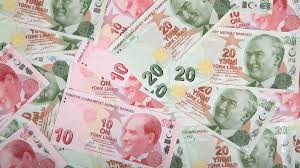The Turkish currency plunged to a historic low against the US dollar on Friday in anticipation of the approaching presidential election runoff that will decide President Tayyip Erdogan’s fate.
The currency crossed the 20 threshold, surging to a startling 20.06 against the US dollar before hardly recovering. Finally, it reached a record-low closing price of 19.978 to end the session. The lira has fallen by 6.3% since the start of the year, adding to the growing economic worries.
Turkish financial assets have been under a lot of negative pressure since the first round of the presidential election on May 14, in which Erdogan emerged as the front-runner for the second round.
In contrast to the significant falls in sovereign dollar bonds and stocks, the cost of insurance against Turkish debt has increased. Market responses are a result of worries that Erdogan will keep up his unusual economic policies, which analysts claim have brought Turkey to the verge of a financial collapse.
Notably, predictions of Erdogan’s win in the poll are mostly to blame for the Turkish lira’s continuous decline in recent days. According to Commerzbank FX analyst Tatha Ghose, the rate of decrease is comparable to a big crisis, and many analysts are expecting an abrupt breakout because it’s likely that the system will continue to move in an unstable direction.
Erdogan’s administration is said to be divided and unsure about whether the current economic plan can be sustained.
According to some insiders, there are conversations over whether to maintain the current policies or change them.
Following several years of market interventions intended to reduce foreign exchange demand, the Turkish central bank’s net foreign exchange reserves recently fell into negative territory for the first time since 2002.
The net foreign exchange reserves fell to -$151.3 million on May 19 as increased forex demand throughout the election season. This increase in demand is a reflection of perceptions that the lira will continue to weaken even after the election. 2021 had a 44% devaluation of the Turkish lira, while 2022 saw an additional 30% drop.
President Erdogan tried to allay fears by mentioning that Turkey had lately received funds from Gulf nations, which temporarily reduced the pressure on the central bank.










